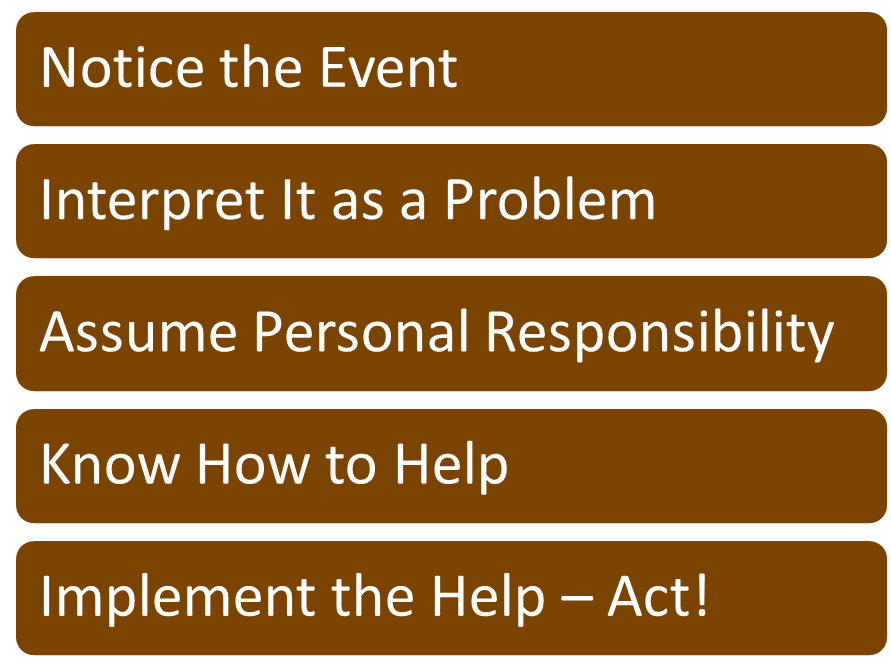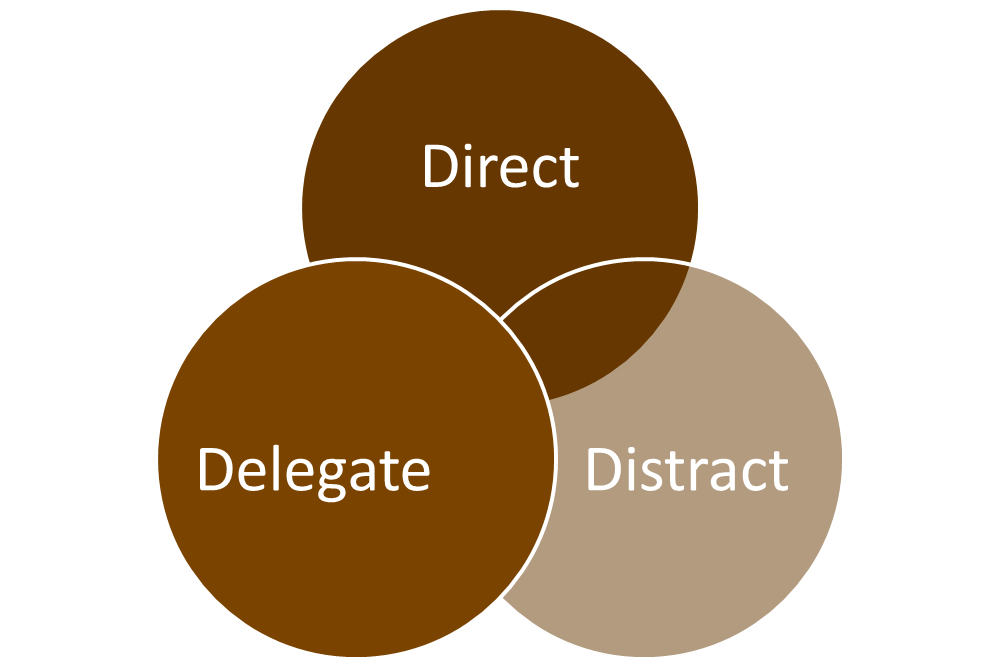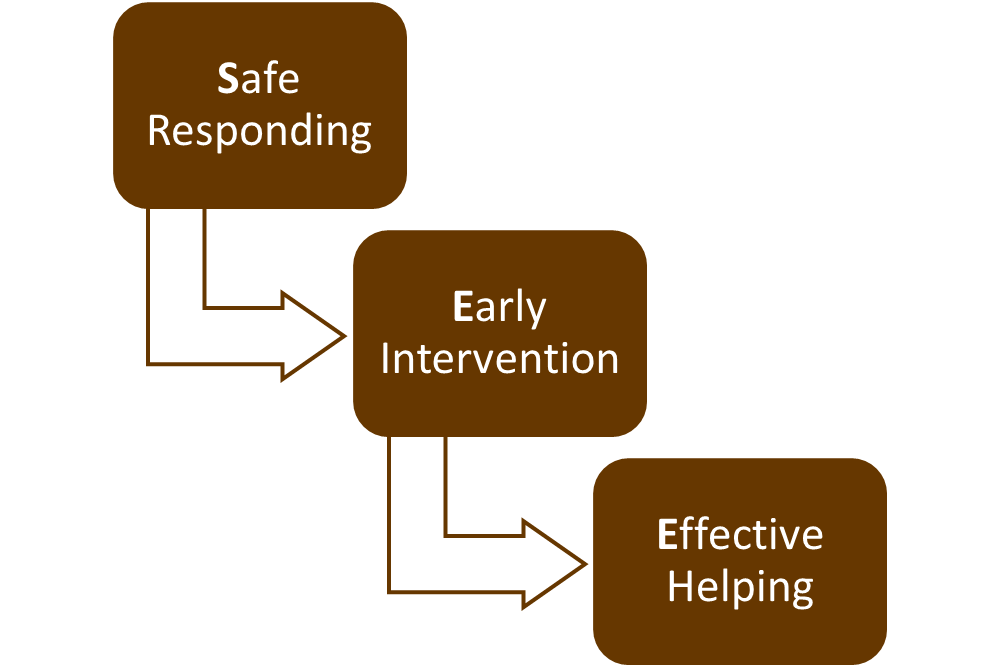Bystander Intervention is recognizing a potentially harmful situation or interaction and choosing to respond in a way that could positively influence the outcome.
Step UP! to Intervention
Everyone Can Help – Don’t Be a Bystander
There are five steps to helping when witness to a problematic or potentially problematic situation:
1. Notice the Event: People are busy, distracted, on their phones, talking, texting, not aware of their surroundings – some don’t want to notice. Pay attention to what is going on around you.
2. Interpret It as a Problem: Sometimes it is hard to tell if someone is in need of help. Error on the side of caution and investigate. Don’t be sidetracked by ambiguity, conformity or peer pressure.
3. Assume Personal Responsibility: If not you, then who? Do not assume someone else will do something. Have the courage and confidence to BE THE FIRST!
4. Know How to Help: NEVER put yourself in harm’s way but DO SOMETHING! Help can be direct or indirect.
5. Implement the Help - Act!
If not you, then who?
Research shows that if you are alone you will help 80% of the time but if you are in a group you will help only 20% of the time because of the diffusion of responsibility-you think someone else will do something. Lehigh students have both personal and community responsibilities. This means not only taking care of yourself, but also taking care of others. You are part of a larger community. When you notice something going on, DO SOMETHING!
*********************************************
Strategies for Doing Something
Involve Myself
Directly address the situation. Step in and say or do something to stop the situation.
· For example, if someone is trying to take an intoxicated student to a room, you can directly intervene by taking the person aside and saying, “Hey man, she looks drunk. I do not think that’s a good idea.”
Interrupt the Situation
Distract. Find a way to redirect the attention of those behaving inappropriately toward something else; making a simple (or elaborate) distraction to diffuse the situation.
· For example, if a couple is arguing and things are getting heated, you can call one of the person’s cellphone or you can tell one of them that someone is outside urgently looking for him/her.
Initiate Help
Delegate. Work with someone else to do a part and you do a part so you are not in it all by yourself or find someone else to address the concern.
· This is a good option if you do not feel safe directly intervening, you are not sure what to do, or you simply do not want to get directly involved. Examples include, if you notice hazing activities, you can file an anonymous Hazing Report (link here). If you are concerned about a friend’s well-being, you can tell Gryphon or a professional in the Counseling Center. If you are at a party and someone is trying to get someone else intoxicated, you can alert the party host.
*********************************************
Safe Responding
Do not put yourself in a dangerous situation. For example, if you witness an altercation, it may be safer to call Campus Police (610-758-4200) rather than approaching the individuals involved.
Early Intervention
Intervening early can avoid a small problem from growing into an even bigger, more harmful problem. For example, it is easier (and safer) to convince your friend to stop drinking early in the evening than calling for an alcohol transport later.
Effective Helping
Effective helping is any helping.
*********************************************
Click HERE for more strategies for effective helping
